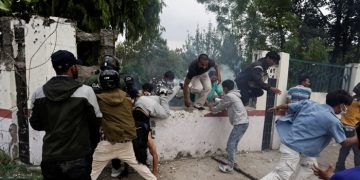EDITORIAL OPIATE TATHAGATA SATPATHY
Many of us would remember the mid and late 1990s when bride-burning cases were rampant. Every other day, the media came up with gruesome tales of innocent, newly married girls being brutally burnt alive in the in-laws’ family. Although this was predominantly happening in the North, especially Delhi, Haryana and UP, more surprisingly similar incidents were being reported from eastern and southern states as well.
Towards the late 90s, one court intervention of an exceptional nature came. A lower court, in its judgment in a bride-burning case, gave death penalty not only to her husband but also her in-laws. Several other courts took a cue from this and started treating such cases with the same seriousness. A few such cases that went in appeal to the Supreme Court too did not help the accused get any reprieve. This visibly helped effect a change for the better in the society at least in its immediate aftermath. Obviously, those who had a proclivity to commit such crimes were scared to their bones.
In later years, the role of Women Commission became more prominent and young newly-wed girls were emboldened to file complaints against their husbands and in-laws. There were some people who alleged that girls were misusing the new facility provided to them, but most others recognized that a social change was in the reckoning.
The molestation incident near Moga last Wednesday, April 29, that occurred on a running bus seemed to have relegated the heinous Nirbhaya incident in Delhi in 2012 to history. Moga presented an equally scary scenario. The utter disregard shown to women, their safety and dignity, and the horror thereof, seem to have scaled new heights. A young mother with her teenage daughter and son were travelling on the highway from Moga bus-stand towards Kotkapura in the afternoon when the incident took place.
The bus belonged to the ruling Akali Dal’s Badal family, and this is definitely something to be concerned about. But, that should not in any manner deflect our attention or detract us from judging the Indian male’s distorted psyche. The young girl was molested in front of her mother and brother. The two pleaded with the driver to save them from the clutches of the gangsters, but to no avail. The driver started speeding the bus, rather than stopping it. In full view of the others present in the bus – there are different versions of the number of occupants – the girl and her mother were pushed out of the running bus. The daughter died on the spot and the mother is alive but in hospital in a critical condition. The teenage son, a helpless witness to the incident, was so shocked that he turned speechless. The horror meted out to his sister and mother has scarred his mind so terribly. There are also reports that the men who indulged in this heinous act were staff of the company that ran the bus. That makes the case more heinous. All the police did, as is reported, was arrest the driver and the rest of the crew. As usual, there might have been political interference to dilute the case and confuse the investigating agencies. Some might now come forward to say that the mother and daughter jumped out of the bus. Any sensible individual would never believe in a fib like this.
The government has announced a compensation. Reports say the family accepted it. They should not have, and instead demanded that what they wanted was justice. This is a pity. Many families that land in such situations do accept compensation by way of an out-of-court settlement and allow a closure of the case. This is happening primarily because we have become a society that hates its daughters.
In our opinion, the only justice that should satisfy the family is a justice that can be won by castrating the driver-conductor-cleaner trio along with the perpetrators of the crime, as also those who sat as mute spectators in the bus and did nothing to help the mother-daughter duo in distress. Some unconfirmed reports say the bus was crowded. An exemplary punishment like castration may not be permitted under the provisions of the Indian Penal Code (IPC). This, however, is time when courts that are so very eager to meddle with the governance system at every turn, showed their real mettle and ensured execution of a judgment that would help create an atmosphere of social change.





































